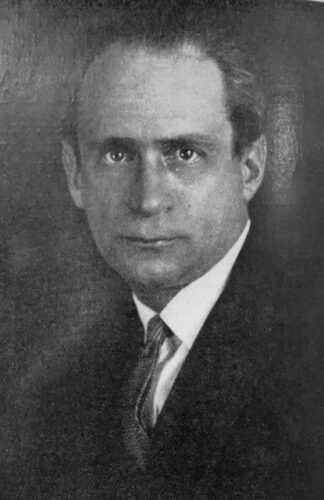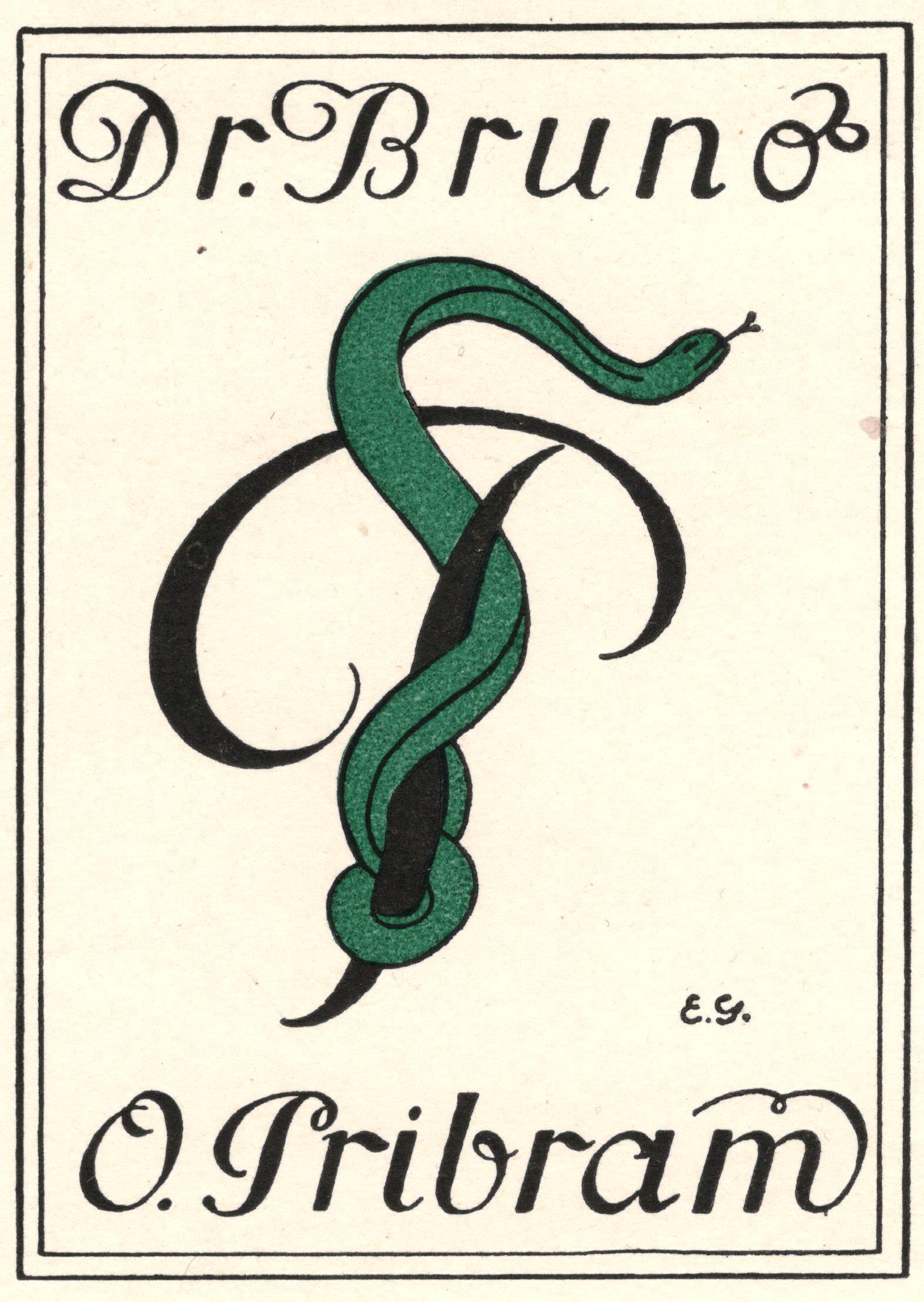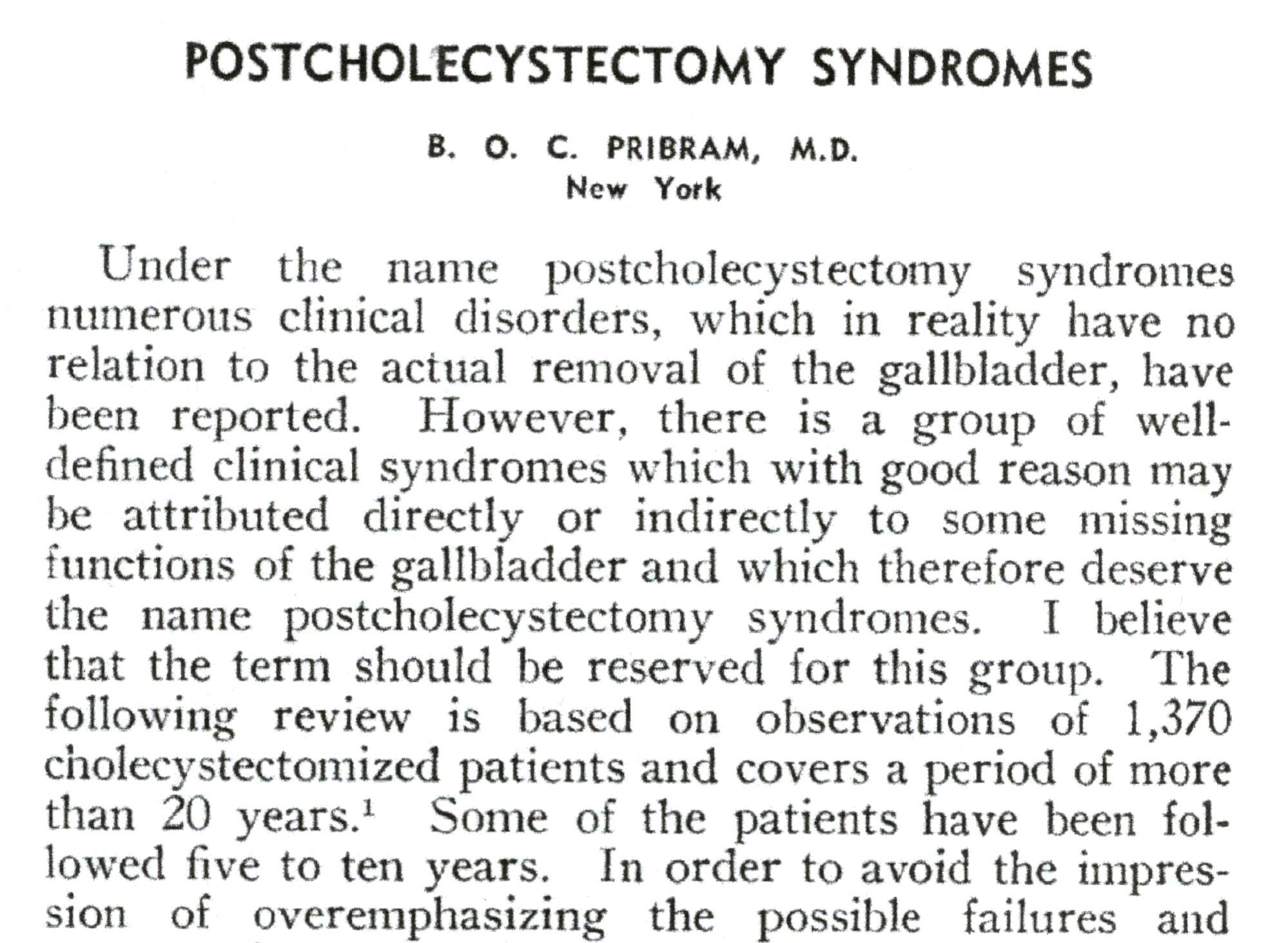Prof. Dr. med. Bruno Oskar Pribram
- Prague, Czech Republic, 11.06.1887
- Garmisch-Partenkirchen, Southern Bavaria, Germany, 13.03.1962
- Member since 1925
- Escaped to the USA in 1938
- Berlin
- Surgeon
Education and Places of Work
Bruno Oskar Pribram first studied chemistry under Zdenko Hans Skraup in Vienna, graduating with a doctorate (Dr. phil.) in 1909. He then went on to study medicine in Vienna and Berlin and worked briefly at the laboratory of the II Medical University Clinic of the Charité in 1912. He passed the medical state examination and received his doctorate in Vienna in 1913.
After having passed his exams, Pribram initially worked as an assistant at the I. Medical University Clinic in Vienna under Carl Harko von Noorden and Karl Friedrich Wenckebach, and under Anton von Eiselsberg at the Surgical Clinic.
He actively participated in the First World War and in 1917, was appointed senior physician of a mobile surgeon group organised by v. Eiselsberg at the Vienna I. Surgical University Clinic.
Pribram moved from Vienna to Berlin in 1918 and undertook his training at the Charité Surgical University Clinic, Ziegelstrasse, under August Bier until 1924. He habilitated in surgery at the Friedrich-Wilhelms University in Berlin in 1922. He was appointed professor (extraordinarius) in December 1928.
Pribram introduced Novoprotin, a plant protein preparation, for the intravenous therapy of gastric and duodenal ulcers in 1922. However, it failed to live up to expectations and had undesirable side effects.
He had headed the department of surgery at the St. Hildegard Hospital in Berlin-Charlottenburg from 1925.
Pribram was mainly active in the interface of surgery, internal medicine, and radiology. His work touched on the diagnosis and surgical therapy of biliary tract diseases, especially of the gallbladder. In addition to abdominal surgery, he researched the invasive therapy of high-grade mitral stenosis. He was one of the first surgeons who dared to perform a surgical intervention on the mitral valve in humans.
Bruno Oskar Pribram was dismissed from his leading position at the St. Hildegard Hospital in Berlin in 1933. His teaching licence at the Berlin University was revoked on 24 November 1933 due to “non-Aryan descent” (§ 3 of the Law for the Restoration of the Professional Civil Service of 7 April 1933, “non-Aryan descent”). Pribram was the son of Catholic parents, one grandparent was a member of the Jewish faith.
Escape to England in 1938 and to the USA in 1940
Pribram fled from Berlin to England in February 1938. He passed the British medical exams, worked briefly at St. Guy’s Hospital in London and later in a practice as a medical practitioner in the London district of Mayfair. He succeeded in getting his 12-year-old son, Heinrich (Henry) F. W. Pribram, out of Germany and bringing him to London in December 1938. Heinrich was the son from Pribram’s 1925 marriage to Hildegard Ullstein, the granddaughter of the founder of the Ullstein publishing house. The marriage was divorced in 1930.
Pribram left Liverpool aboard the ocean liner, the Royal Mail Ship Antonia in July 1940, first to Canada and from there to the USA. He reached Detroit on 9 August 1940.
Bruno Oskar Pribram’s German citizenship was revoked in June 1940. As a result, he was stateless for ten years, notably since he was not granted US citizenship until 1950.
Pribram headed the department of surgery at St. Elizabeth’s Hospital in Shanghai, an American mission hospital, from 1940 to December 1945.
After returning to New York, he worked as a surgeon at St. Clare’s Catholic Hospital in Manhattan and after 1945 repeatedly published on the further development of bile duct surgery and on the therapy of occlusive icterus. In 1950 Pribram coined the term “postcholecystectomy syndrome”. Pribram was a Fellow of the American College of Surgeons and a member of the Medical Society of the State of New York, USA. Pribram was no longer able to work after having sustained a stroke in 1951. His last place of residence in the USA was Cleveland, Ohio.
Bruno Oskar Pribram died in Garmisch-Partenkirchen in Bavaria in March 1962 at the age of 74. He was buried at the local cemetery in Garmisch-Patenkirchen. His gravesite was dissolved in the 1980s.
Pribram’s brother, the gynaecologist Professor Egon Ewald Pribram, who had been working in Frankfurt, was imprisoned at the Buchenwald concentration camp in the summer of 1938. After his release in April 1939, he had to leave Germany. He was able to flee to Shanghai, China, and lived in Cleveland, USA, from December 1948.


